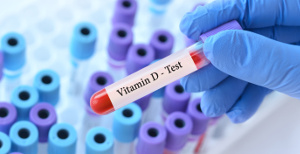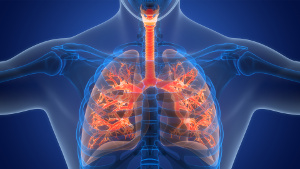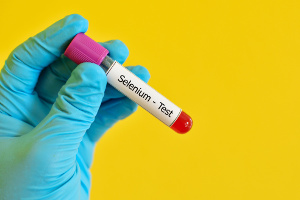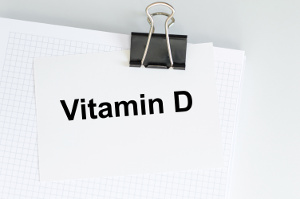afterLoad (456.3KB) (588μs)
afterInitialise (1.27MB) (53.81ms)
afterRoute (827.66KB) (26.79ms)
beforeRenderComponent com_content (35.2KB) (2.53ms)
Before Access::preloadComponents (all components) (67.27KB) (2.96ms)
After Access::preloadComponents (all components) (98.07KB) (2.35ms)
Before Access::preloadPermissions (com_content) (1.6KB) (7μs)
After Access::preloadPermissions (com_content) (3.29MB) (35.87ms)
Before Access::getAssetRules (id:62 name:com_content.category.20) (130.65KB) (159μs)
After Access::getAssetRules (id:62 name:com_content.category.20) (7.38KB) (64μs)
Before Access::getAssetRules (id:8 name:com_content) (51.77KB) (69.06ms)
After Access::getAssetRules (id:8 name:com_content) (6.17KB) (36μs)
afterRenderComponent com_content (1.46MB) (370ms)
afterDispatch (32.39KB) (7.68ms)
beforeRenderRawModule mod_articles_category (READ MORE...) (398.66KB) (27.59ms)
afterRenderRawModule mod_articles_category (READ MORE...) (89KB) (281ms)
beforeRenderRawModule mod_custom (BOOST YOUR IMMUNE DEFENSE) (6.45KB) (39μs)
afterRenderRawModule mod_custom (BOOST YOUR IMMUNE DEFENSE) (4.42KB) (614μs)
beforeRenderRawModule mod_articles_latest (Latest news) (976B) (35μs)
afterRenderRawModule mod_articles_latest (Latest news) (51.22KB) (487ms)
beforeRenderRawModule mod_tags_popular (Search) (2.09KB) (31μs)
afterRenderRawModule mod_tags_popular (Search) (27.62KB) (392ms)
beforeRenderRawModule mod_custom (the Vitamin and Mineral Guide) (960B) (434μs)
afterRenderRawModule mod_custom (the Vitamin and Mineral Guide) (1.02KB) (72μs)
beforeRenderRawModule mod_custom (Weight loss that works) (736B) (14μs)
afterRenderRawModule mod_custom (Weight loss that works) (928B) (25μs)
beforeRenderRawModule mod_custom (Get additionel and more detailed knowledge ) (752B) (10μs)
afterRenderRawModule mod_custom (Get additionel and more detailed knowledge ) (944B) (21μs)
beforeRenderRawModule mod_custom (Q10 goes by many names) (736B) (9μs)
afterRenderRawModule mod_custom (Q10 goes by many names) (928B) (20μs)
beforeRenderRawModule mod_custom (Check this before you buy a Q10 product) (752B) (8μs)
afterRenderRawModule mod_custom (Check this before you buy a Q10 product) (944B) (18μs)
beforeRenderRawModule mod_custom (Are you taking supplements) (736B) (9μs)
afterRenderRawModule mod_custom (Are you taking supplements) (2.28KB) (19μs)
beforeRenderRawModule mod_custom (Antiaging) (720B) (9μs)
afterRenderRawModule mod_custom (Antiaging) (912B) (17μs)
beforeRenderRawModule mod_custom (Exercise) (720B) (8μs)
afterRenderRawModule mod_custom (Exercise) (912B) (17μs)
beforeRenderRawModule mod_custom (Useful Links) (720B) (9μs)
afterRenderRawModule mod_custom (Useful Links) (1.02KB) (18μs)
beforeRenderModule mod_articles_category (READ MORE...) (268.2KB) (5.85ms)
afterRenderModule mod_articles_category (READ MORE...) (1.25KB) (90μs)
beforeRenderModule mod_custom (BOOST YOUR IMMUNE DEFENSE) (6.81KB) (17μs)
afterRenderModule mod_custom (BOOST YOUR IMMUNE DEFENSE) (1.28KB) (26μs)
beforeRenderModule mod_articles_latest (Latest news) (592B) (11μs)
afterRenderModule mod_articles_latest (Latest news) (1.27KB) (24μs)
beforeRenderModule mod_tags_popular (Search) (1.73KB) (11μs)
afterRenderModule mod_tags_popular (Search) (1.27KB) (21μs)
beforeRenderModule mod_custom (the Vitamin and Mineral Guide) (1.31KB) (9μs)
afterRenderModule mod_custom (the Vitamin and Mineral Guide) (1.28KB) (20μs)
beforeRenderModule mod_custom (Weight loss that works) (336B) (9μs)
afterRenderModule mod_custom (Weight loss that works) (1.27KB) (20μs)
beforeRenderModule mod_custom (Get additionel and more detailed knowledge ) (368B) (9μs)
afterRenderModule mod_custom (Get additionel and more detailed knowledge ) (1.3KB) (19μs)
beforeRenderModule mod_custom (Q10 goes by many names) (336B) (9μs)
afterRenderModule mod_custom (Q10 goes by many names) (1.27KB) (20μs)
beforeRenderModule mod_custom (Check this before you buy a Q10 product) (352B) (9μs)
afterRenderModule mod_custom (Check this before you buy a Q10 product) (1.28KB) (19μs)
beforeRenderModule mod_custom (Are you taking supplements) (352B) (8μs)
afterRenderModule mod_custom (Are you taking supplements) (1.28KB) (19μs)
beforeRenderModule mod_custom (Antiaging) (336B) (9μs)
afterRenderModule mod_custom (Antiaging) (1.27KB) (18μs)
beforeRenderModule mod_custom (Exercise) (336B) (9μs)
afterRenderModule mod_custom (Exercise) (1.25KB) (18μs)
beforeRenderModule mod_custom (Useful Links) (336B) (8μs)
afterRenderModule mod_custom (Useful Links) (3.77KB) (64μs)
beforeRenderRawModule mod_menu (Main Menu - English) (37.51KB) (1.93ms)
afterRenderRawModule mod_menu (Main Menu - English) (190.16KB) (3.99ms)
beforeRenderModule mod_menu (Main Menu - English) (720B) (7μs)
afterRenderModule mod_menu (Main Menu - English) (4.86KB) (69μs)
beforeRenderRawModule mod_languages (Sprogskift) (3.94KB) (22μs)
afterRenderRawModule mod_languages (Sprogskift) (21.67KB) (10.12ms)
beforeRenderModule mod_languages (Sprogskift) (720B) (8μs)
afterRenderModule mod_languages (Sprogskift) (5.31KB) (24μs)
beforeRenderRawModule mod_finder () (6.34KB) (14μs)
afterRenderRawModule mod_finder () (132.96KB) (6.91ms)
beforeRenderModule mod_finder () (704B) (7μs)
afterRenderModule mod_finder () (3.29KB) (43μs)
beforeRenderRawModule mod_custom () (6.62KB) (3.22ms)
afterRenderRawModule mod_custom () (26.52KB) (2.92ms)
beforeRenderModule mod_custom () (704B) (9μs)
afterRenderModule mod_custom () (1.23KB) (77μs)
beforeRenderRawModule mod_menu (Main Menu - English) (5.07KB) (144μs)
afterRenderRawModule mod_menu (Main Menu - English) (6.3KB) (1.99ms)
beforeRenderModule mod_menu (Main Menu - English) (720B) (8μs)
afterRenderModule mod_menu (Main Menu - English) (1.25KB) (68μs)
beforeRenderRawModule mod_languages (Sprogskift Mobil) (912B) (24μs)
afterRenderRawModule mod_languages (Sprogskift Mobil) (3.89KB) (1.67ms)
beforeRenderModule mod_languages (Sprogskift Mobil) (720B) (8μs)
afterRenderModule mod_languages (Sprogskift Mobil) (1.27KB) (55μs)
beforeRenderRawModule mod_finder () (2.3KB) (16μs)
afterRenderRawModule mod_finder () (6.29KB) (765μs)
beforeRenderModule mod_finder () (704B) (6μs)
afterRenderModule mod_finder () (1.23KB) (53μs)
beforeRenderRawModule mod_custom () (8.66KB) (241μs)
afterRenderRawModule mod_custom () (904B) (177μs)
beforeRenderModule mod_custom () (704B) (3μs)
afterRenderModule mod_custom () (2.43KB) (27μs)
beforeRenderRawModule mod_custom () (688B) (85μs)
afterRenderRawModule mod_custom () (896B) (95μs)
beforeRenderModule mod_custom () (704B) (2μs)
afterRenderModule mod_custom () (2.71KB) (21μs)
afterRender (277.09KB) (18.75ms)
| 1 x afterRenderRawModule mod_articles_latest (Latest news) (51.22KB) (26.69%) | 486.70ms |
| 1 x afterRenderRawModule mod_tags_popular (Search) (27.62KB) (21.52%) | 392.49ms |
| 1 x afterRenderComponent com_content (1.46MB) (20.29%) | 369.97ms |
| 1 x afterRenderRawModule mod_articles_category (READ MORE...) (89KB) (15.41%) | 281.06ms |
| 1 x Before Access::getAssetRules (id:8 name:com_content) (51.77KB) (3.79%) | 69.06ms |
| 1 x afterInitialise (1.27MB) (2.95%) | 53.81ms |
| 1 x After Access::preloadPermissions (com_content) (3.29MB) (1.97%) | 35.87ms |
| 1 x beforeRenderRawModule mod_articles_category (READ MORE...) (398.66KB) (1.51%) | 27.59ms |
| 1 x afterRoute (827.66KB) (1.47%) | 26.79ms |
| 1 x afterRender (277.09KB) (1.03%) | 18.75ms |
| 1 x afterRenderRawModule mod_languages (Sprogskift) (21.67KB) (0.56%) | 10.12ms |
| 1 x afterDispatch (32.39KB) (0.42%) | 7.68ms |
| 1 x afterRenderRawModule mod_finder () (132.96KB) (0.38%) | 6.91ms |
| 1 x beforeRenderModule mod_articles_category (READ MORE...) (268.2KB) (0.32%) | 5.85ms |
| 1 x afterRenderRawModule mod_menu (Main Menu - English) (190.16KB) (0.22%) | 3.99ms |
| 1 x beforeRenderRawModule mod_custom () (6.62KB) (0.18%) | 3.22ms |
| 1 x Before Access::preloadComponents (all components) (67.27KB) (0.16%) | 2.96ms |
| 1 x afterRenderRawModule mod_custom () (26.52KB) (0.16%) | 2.92ms |
| 1 x beforeRenderComponent com_content (35.2KB) (0.14%) | 2.53ms |
| 1 x After Access::preloadComponents (all components) (98.07KB) (0.13%) | 2.35ms |
| 1 x afterRenderRawModule mod_menu (Main Menu - English) (6.3KB) (0.11%) | 1.99ms |
| 1 x beforeRenderRawModule mod_menu (Main Menu - English) (37.51KB) (0.11%) | 1.93ms |
| 1 x afterRenderRawModule mod_languages (Sprogskift Mobil) (3.89KB) (0.09%) | 1.67ms |
| 1 x afterRenderRawModule mod_finder () (6.29KB) (0.04%) | 765μs |
| 1 x afterRenderRawModule mod_custom (BOOST YOUR IMMUNE DEFENSE) (4.42KB) (0.03%) | 614μs |
| 1 x afterLoad (456.3KB) (0.03%) | 588μs |
| 1 x beforeRenderRawModule mod_custom (the Vitamin and Mineral Guide) (960B) (0.02%) | 434μs |
| 1 x beforeRenderRawModule mod_custom () (8.66KB) (0.01%) | 241μs |
| 1 x afterRenderRawModule mod_custom () (904B) (0.01%) | 177μs |
| 1 x Before Access::getAssetRules (id:62 name:com_content.category.20) (130.65KB) (0.01%) | 159μs |
| 1 x beforeRenderRawModule mod_menu (Main Menu - English) (5.07KB) (0.01%) | 144μs |
| 1 x afterRenderRawModule mod_custom () (896B) (0.01%) | 95μs |
| 1 x afterRenderModule mod_articles_category (READ MORE...) (1.25KB) (0%) | 90μs |
| 1 x beforeRenderRawModule mod_custom () (688B) (0%) | 85μs |
| 1 x afterRenderModule mod_custom () (1.23KB) (0%) | 77μs |
| 1 x afterRenderRawModule mod_custom (the Vitamin and Mineral Guide) (1.02KB) (0%) | 72μs |
| 1 x afterRenderModule mod_menu (Main Menu - English) (4.86KB) (0%) | 69μs |
| 1 x afterRenderModule mod_menu (Main Menu - English) (1.25KB) (0%) | 68μs |
| 1 x afterRenderModule mod_custom (Useful Links) (3.77KB) (0%) | 64μs |
| 1 x After Access::getAssetRules (id:62 name:com_content.category.20) (7.38KB) (0%) | 64μs |
| 1 x afterRenderModule mod_languages (Sprogskift Mobil) (1.27KB) (0%) | 55μs |
| 1 x afterRenderModule mod_finder () (1.23KB) (0%) | 53μs |
| 1 x afterRenderModule mod_finder () (3.29KB) (0%) | 43μs |
| 1 x beforeRenderRawModule mod_custom (BOOST YOUR IMMUNE DEFENSE) (6.45KB) (0%) | 39μs |
| 1 x After Access::getAssetRules (id:8 name:com_content) (6.17KB) (0%) | 36μs |
| 1 x beforeRenderRawModule mod_articles_latest (Latest news) (976B) (0%) | 35μs |
| 1 x beforeRenderRawModule mod_tags_popular (Search) (2.09KB) (0%) | 31μs |
| 1 x afterRenderModule mod_custom () (2.43KB) (0%) | 27μs |
| 1 x afterRenderModule mod_custom (BOOST YOUR IMMUNE DEFENSE) (1.28KB) (0%) | 26μs |
| 1 x afterRenderRawModule mod_custom (Weight loss that works) (928B) (0%) | 25μs |
| 1 x afterRenderModule mod_articles_latest (Latest news) (1.27KB) (0%) | 24μs |
| 1 x afterRenderModule mod_languages (Sprogskift) (5.31KB) (0%) | 24μs |
| 1 x beforeRenderRawModule mod_languages (Sprogskift Mobil) (912B) (0%) | 24μs |
| 1 x beforeRenderRawModule mod_languages (Sprogskift) (3.94KB) (0%) | 22μs |
| 1 x afterRenderRawModule mod_custom (Get additionel and more detailed knowledge ) (944B) (0%) | 21μs |
| 1 x afterRenderModule mod_tags_popular (Search) (1.27KB) (0%) | 21μs |
| 1 x afterRenderModule mod_custom () (2.71KB) (0%) | 21μs |
| 1 x afterRenderRawModule mod_custom (Q10 goes by many names) (928B) (0%) | 20μs |
| 1 x afterRenderModule mod_custom (the Vitamin and Mineral Guide) (1.28KB) (0%) | 20μs |
| 1 x afterRenderModule mod_custom (Weight loss that works) (1.27KB) (0%) | 20μs |
| 1 x afterRenderModule mod_custom (Q10 goes by many names) (1.27KB) (0%) | 20μs |
| 1 x afterRenderRawModule mod_custom (Are you taking supplements) (2.28KB) (0%) | 19μs |
| 1 x afterRenderModule mod_custom (Get additionel and more detailed knowledge ) (1.3KB) (0%) | 19μs |
| 1 x afterRenderModule mod_custom (Check this before you buy a Q10 product) (1.28KB) (0%) | 19μs |
| 1 x afterRenderModule mod_custom (Are you taking supplements) (1.28KB) (0%) | 19μs |
| 1 x afterRenderRawModule mod_custom (Check this before you buy a Q10 product) (944B) (0%) | 18μs |
| 1 x afterRenderModule mod_custom (Antiaging) (1.27KB) (0%) | 18μs |
| 1 x afterRenderModule mod_custom (Exercise) (1.25KB) (0%) | 18μs |
| 1 x afterRenderRawModule mod_custom (Useful Links) (1.02KB) (0%) | 18μs |
| 1 x afterRenderRawModule mod_custom (Antiaging) (912B) (0%) | 17μs |
| 1 x afterRenderRawModule mod_custom (Exercise) (912B) (0%) | 17μs |
| 1 x beforeRenderModule mod_custom (BOOST YOUR IMMUNE DEFENSE) (6.81KB) (0%) | 17μs |
| 1 x beforeRenderRawModule mod_finder () (2.3KB) (0%) | 16μs |
| 2 x beforeRenderModule mod_menu (Main Menu - English) (720B) (0%) | 15μs |
| 3 x beforeRenderModule mod_custom () (704B) (0%) | 14μs |
| 1 x beforeRenderRawModule mod_custom (Weight loss that works) (736B) (0%) | 14μs |
| 1 x beforeRenderRawModule mod_finder () (6.34KB) (0%) | 14μs |
| 2 x beforeRenderModule mod_finder () (704B) (0%) | 13μs |
| 1 x beforeRenderModule mod_articles_latest (Latest news) (592B) (0%) | 11μs |
| 1 x beforeRenderModule mod_tags_popular (Search) (1.73KB) (0%) | 11μs |
| 1 x beforeRenderRawModule mod_custom (Get additionel and more detailed knowledge ) (752B) (0%) | 10μs |
| 1 x beforeRenderRawModule mod_custom (Q10 goes by many names) (736B) (0%) | 9μs |
| 1 x beforeRenderRawModule mod_custom (Antiaging) (720B) (0%) | 9μs |
| 1 x beforeRenderRawModule mod_custom (Useful Links) (720B) (0%) | 9μs |
| 1 x beforeRenderModule mod_custom (the Vitamin and Mineral Guide) (1.31KB) (0%) | 9μs |
| 1 x beforeRenderModule mod_custom (Weight loss that works) (336B) (0%) | 9μs |
| 1 x beforeRenderModule mod_custom (Q10 goes by many names) (336B) (0%) | 9μs |
| 1 x beforeRenderModule mod_custom (Antiaging) (336B) (0%) | 9μs |
| 1 x beforeRenderRawModule mod_custom (Are you taking supplements) (736B) (0%) | 9μs |
| 1 x beforeRenderModule mod_custom (Get additionel and more detailed knowledge ) (368B) (0%) | 9μs |
| 1 x beforeRenderModule mod_custom (Check this before you buy a Q10 product) (352B) (0%) | 9μs |
| 1 x beforeRenderModule mod_custom (Exercise) (336B) (0%) | 9μs |
| 1 x beforeRenderRawModule mod_custom (Exercise) (720B) (0%) | 8μs |
| 1 x beforeRenderModule mod_custom (Are you taking supplements) (352B) (0%) | 8μs |
| 1 x beforeRenderRawModule mod_custom (Check this before you buy a Q10 product) (752B) (0%) | 8μs |
| 1 x beforeRenderModule mod_custom (Useful Links) (336B) (0%) | 8μs |
| 1 x beforeRenderModule mod_languages (Sprogskift) (720B) (0%) | 8μs |
| 1 x beforeRenderModule mod_languages (Sprogskift Mobil) (720B) (0%) | 8μs |
| 1 x Before Access::preloadPermissions (com_content) (1.6KB) (0%) | 7μs |
 Type 2 diabetes is spreading like a bushfire and is the major cause of vision loss, kidney failure, heart attacks, strokes, and leg amputations. Many people have insulin resistance, the early stage of type diabetes that is associated with fatigue, untimely hunger, and increasing weight. The diet plays a major role and according to a new review article that is published in Human Nutrition and Metabolism, various B vitamins, vitamin D, vitamin K, vitamin E, and zinc influence insulin resistance and diabetes treatment. Previous research has also shown that chromium and magnesium play a role in insulin resistance and blood sugar regulation.
Type 2 diabetes is spreading like a bushfire and is the major cause of vision loss, kidney failure, heart attacks, strokes, and leg amputations. Many people have insulin resistance, the early stage of type diabetes that is associated with fatigue, untimely hunger, and increasing weight. The diet plays a major role and according to a new review article that is published in Human Nutrition and Metabolism, various B vitamins, vitamin D, vitamin K, vitamin E, and zinc influence insulin resistance and diabetes treatment. Previous research has also shown that chromium and magnesium play a role in insulin resistance and blood sugar regulation.








 The rate of inflammatory bowel diseases like ulcerous colitis is growing, and diet plays a major role. Even if you eat a healthy diet, it can be a challenge to get enough
The rate of inflammatory bowel diseases like ulcerous colitis is growing, and diet plays a major role. Even if you eat a healthy diet, it can be a challenge to get enough 
 Menopause is typically linked to hormonal changes that increase the risk of aching joints, overweight, cardiovascular disease, muscle weakness, and metabolic disturbances. According to a study published in Nutrients, however, high-dosed supplementation with
Menopause is typically linked to hormonal changes that increase the risk of aching joints, overweight, cardiovascular disease, muscle weakness, and metabolic disturbances. According to a study published in Nutrients, however, high-dosed supplementation with 



 Epidemiological studies have shown that relatively high doses of
Epidemiological studies have shown that relatively high doses of 

